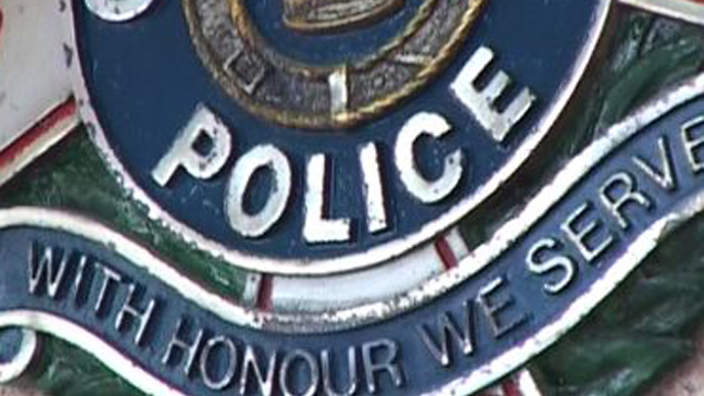THE DECISION TO FILE A COMPLAINT WITH THE POLICE OR IBAC
A complaint should be the gateway to criminal and disciplinary proceedings against police. It also should be used by police to improve police practices.
The problem in Victoria at present is that in the vast majority of cases, police investigate or otherwise manage complaints. The Police Accountability Project (PAP) allege that sometimes police investigators assist the police they are investigating to escape liability.
Some of the ways PAP alleges this occurs is that police investigators:
- Ask police to send investigators a statement after the police know about the complaint and have been able to construct a response with their police colleagues.
- Focus on alleged client criminality rather than the complaint or the complaint history of the police they are investigating.
- Make up excuses for the police they are investigating.
- Fail to apply the law.
- Fail to investigate.
- Try to convince the client to drop their complaint or to plead guilty to charges.
- Assist the police they are investigating to improve the credibility of their evidence.
- Critically analysis the client’s version of events while accepting the police evidence on its face.
- Provide evidence to assist the prosecution of the charge against the client.
- Intimidate witnesses and complainants.
- Fail to comply with their own guidelines to ensure police investigations are separate from complainant prosecutions.
For these reasons, unless Independent Broad-based Anti-corruption Commission (IBAC) or another independent body agree to investigate, it is probably prudent to hold off on any police investigation until after any charges against the client relating to the incident are finalised in court.

Asking IBAC to investigate
You can make a complaint to IBAC, however most complaints will be investigated by the Police Conduct Unit in the Professional Standards Command of Victoria Police.
“Where the complaint is against a very senior officer, or relates to serious problems with police practices or procedures, or where IBAC considers it is in the public interest to do so, IBAC may investigate from the beginning. The PSC can review investigations and may require police to conduct further investigations or may conduct further investigations itself. As well as ensuring complaints are handled properly, reviews of police investigations allow IBAC to identify broader systemic issues that may need to be investigated.
If you have any doubt about how your complaint might be handled, it is best to first contact IBAC, which will be able to provide you with advice and your options, in confidence.
People of Aboriginal or Torres Strait Islander descent who have a complaint about the police can contact a Police Aboriginal Liaison Officer.
If you are unhappy with an IBAC decision, you can request an internal review of its decision. An IBAC staff member independent of the original decision-maker must conduct this review.”
Human Rights
IBAC, as a public authority, is required to consider human rights when it makes a decision.
See if your client is complaining about:
a) ill-treatment in custody,
b) police conduct that results in death or near-death,
c) racial discrimination in combination with one of the two factors above,
d) breach of a privacy right,
e) excessive use of force,
f) police criminality or a disciplinary offences.
Allegations of violations of these rights have been found to require an effective investigation by human rights bodies, courts and inquiry findings. Some of the sources are embedded into the above text.
You can find a more detailed discussion here: An Effective System for Investigating Complaints Against Police.
If IBAC fails to independently investigate your client’s complaint, you should consider the following:
a) Seek an internal review from IBAC
b) Make a complaint to the Victorian Ombudsman
c) File a judicial review with the Supreme Court (a test case is required)
d) If these mechanisms are ineffective and you have exhausted all domestic remedies, you could consider making a Communication to the United Nations Human Rights Committee alleging a violation of your clients rights.

An effective investigation is one that has the following qualities:
Independence
There should be organizational and functional independence; that is by non-police investigators according to established principles of independence and impartiality; [“This means not only a lack of hierarchical or institutional connection but also a practical independence ” “independent in law and practise” “Supervision [of the police investigation] by another authority, however independent, has been found not to be a sufficient safeguard for the independence of the investigation ].
Adequacy
The investigation should be capable of gathering evidence to determine whether the behaviour complained of was unlawful [whether the force used was justified ] and to identify and punish those responsible; [Furthermore, the investigation is “not simply about what happened….it is about why it happened”] [the investigative obligation of the state may – depending on the facts at issue – go well beyond the ascertainment of individual fault and reach questions of system, management and institutional culture.]
Promptness
A speedy response and expeditiousness is crucial for maintaining trust and confidence in the rule of law and in order to dispel any fear or collusion in any attempt to conceal misconduct.
Public Scrutiny
Accountability is served by open and transparent procedures and decision-making at every stage of the determination of a complaint against police; [In Anguelova v Bulgaria this principle was put: “there must be a sufficient element of public scrutiny of the investigation or its results to secure accountability in practice as well as in theory, maintain public confidence in the authorities’ adherence to the rule of law and prevent any appearance of collusion in or tolerance of unlawful acts.” ].
Victim Involvement
In order to safeguard his or her legitimate interests the victim is entitled to participate in the process.” [Effective Participation].
